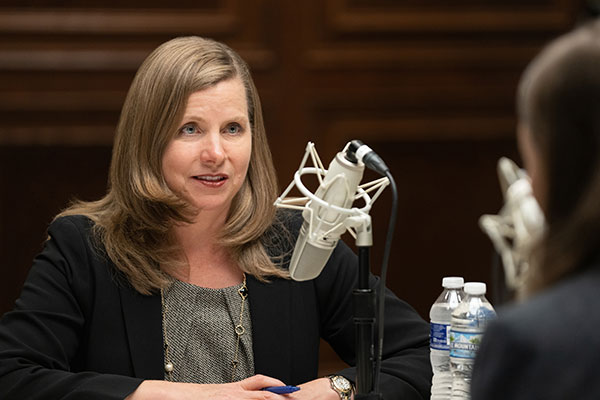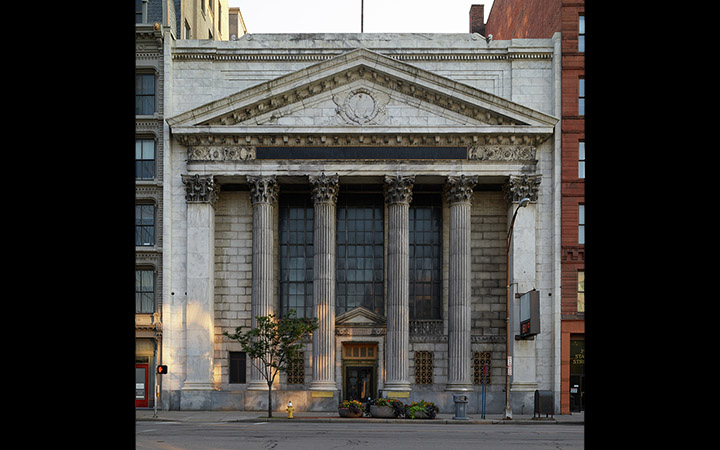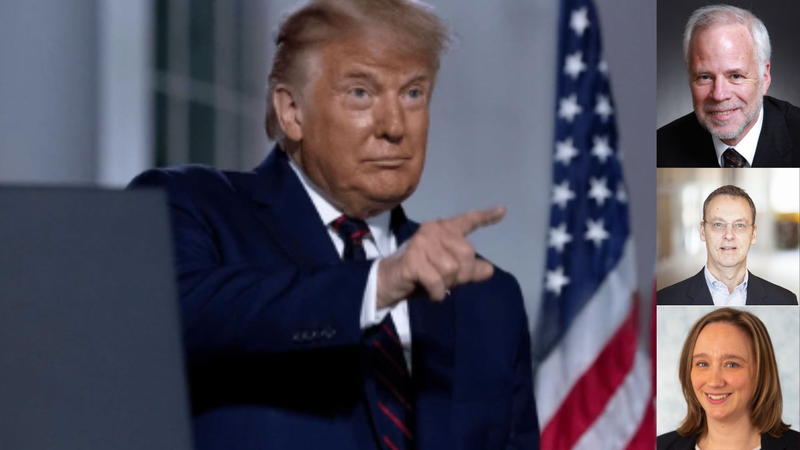Trump’s Unconventional Move: The Consequences of Tapping Michelle Bowman as Fed Vice-Chair for Supervision
Input
Modified
What Bowman’s Appointment Means for the Federal Reserve Trump’s Broader Strategy: A Move to Intervene in Fed’s Decisions? Trump's Unconventional Steps: Reactions from Eichengreen and Other Economists

What Bowman’s Appointment Means for the Federal Reserve
In a move that has reignited debates about the independence of the Federal Reserve, former President Donald Trump has tapped Federal Reserve Governor Michelle Bowman to serve as the central bank’s vice-chair for supervision. Bowman's nomination marks a significant shift in the Fed’s regulatory approach, particularly as the Biden administration appointees still hold a majority within the board. However, Trump's decision is more than a simple appointment—it is widely viewed as a strategic effort to exert greater control over the Fed’s regulatory functions and, possibly, its broader policymaking
Bowman, a seasoned regulator with a background in community banking and state-level financial oversight, is expected to take a different stance from her predecessor, Michael Barr. While Barr, a Biden appointee, pushed for stricter regulations on large financial institutions, Bowman is seen as a proponent of easing restrictions. Industry leaders, particularly on Wall Street, have expressed optimism about her appointment, anticipating a more business-friendly regulatory environment.
Despite this optimism from banking executives, Bowman’s appointment raises concerns about potential political interference in the Fed’s regulatory operations. The Federal Reserve, designed as an independent institution, has historically sought to shield its monetary and supervisory decisions from political influence. Trump’s nomination of Bowman, however, has led some economists to worry that the former president intends to undermine this independence by appointing officials who align with his deregulatory vision.

Trump’s Broader Strategy: A Move to Intervene in Fed’s Decisions?
Economists suspect that Bowman’s appointment is only part of a broader plan by Trump to exert influence over the Federal Reserve. Trump has long criticized the Fed’s policies, particularly its approach to interest rates and financial regulation. During his first term, he frequently voiced his frustration with the central bank, even calling for the removal of Chair Jerome Powell.
Trump’s executive order requiring greater White House oversight of independent agencies, including the Federal Reserve, has fueled further concerns. While the order explicitly excludes monetary policy, it does apply to regulatory functions, which include overseeing banks and setting capital requirements. By appointing Bowman, Trump appears to be taking a strategic step toward reshaping the Fed’s regulatory landscape, making it more accommodating to industry demands.
Barry Eichengreen, a professor of economics and political science at the University of California, Berkeley, argues that Trump’s move is part of an effort to expand presidential authority over independent institutions. “Unlike in his first term, Trump now appears less concerned about the consequences of market instability. His goal seems to be a fundamental restructuring of financial oversight in favor of deregulation, regardless of the risks,” Eichengreen stated in a recent analysis.

Trump's Unconventional Steps: Reactions from Eichengreen and Other Economists
Eichengreen further argues that Trump’s approach to the Federal Reserve is highly unconventional. Historically, presidents have sought to maintain a certain level of distance from the Fed to preserve market confidence in its independence. Trump, however, has taken a far more hands-on approach, pushing policies that directly challenge the institution’s autonomy.
One of the key concerns Eichengreen highlights is that Trump’s focus on deregulation could weaken financial safeguards put in place after the 2008 financial crisis. “There’s a reason we have an independent Fed and financial regulators—to prevent short-term political pressures from dictating long-term economic stability,” he noted.
Trump’s appointment of Bowman is part of a broader strategy to weaken regulatory oversight, Eichengreen argues. By reducing capital requirements and loosening restrictions on lending, banks may become more profitable in the short term but could increase systemic risks in the long run. Eichengreen warns that such a shift could lead to financial instability similar to that seen in the early 2000s.
Eichengreen is not alone in his concerns. Other economists and financial experts have expressed alarm over the potential consequences of Trump’s decisions. Some fear that Bowman’s appointment will lead to a regulatory environment that favors large banks at the expense of financial stability.
Joseph Gagnon, a senior fellow at the Peterson Institute for International Economics, echoed these concerns, stating that “Trump’s interventions in the Fed’s regulatory functions could erode confidence in the institution’s independence. If investors believe that the Fed is being politically manipulated, market reactions could become unpredictable, leading to unnecessary volatility.”Similarly, Claudia Sahm, a former Federal Reserve economist, emphasized that the Fed’s independence is essential for maintaining global investor confidence. “The U.S. economy relies on a strong, independent Federal Reserve to ensure stable financial markets. If the perception grows that the Fed is bending to political pressures, it could have long-term consequences for how the world views the U.S. financial system,” she warned.
Another concern voiced by some experts is the potential for regulatory rollbacks that may encourage risky banking practices. Aaron Klein, a senior fellow at the Brookings Institution, pointed out that the 2008 financial crisis was exacerbated by lax regulatory oversight. “We’ve seen what happens when financial regulations are weakened in favor of short-term profits. Trump’s decision to install Bowman could set the stage for another cycle of excessive risk-taking,” he cautioned.
Despite these concerns, Trump’s decision to appoint Bowman has been praised by some within the financial industry. Executives at major banks, including Goldman Sachs and JPMorgan Chase, have expressed optimism that Bowman’s leadership will create a more business-friendly regulatory environment. They argue that excessive regulation has stifled economic growth and that Bowman’s approach will encourage lending and investment.
However, the long-term implications of Trump’s actions remain uncertain. If his broader efforts to assert control over independent institutions like the Fed continue, they could provoke backlash from both policymakers and the financial sector. The question remains whether such moves will lead to a more efficient regulatory framework or create conditions for financial instability.
As the debate over Bowman’s appointment and Trump’s influence over the Federal Reserve unfolds, economists, policymakers, and financial leaders will be closely watching the consequences. If Trump succeeds in reshaping the Fed’s regulatory approach, it could mark a fundamental shift in how financial oversight is conducted in the United States. However, if concerns about political interference continue to mount, the independence of the Federal Reserve may face its greatest test in modern history.





















